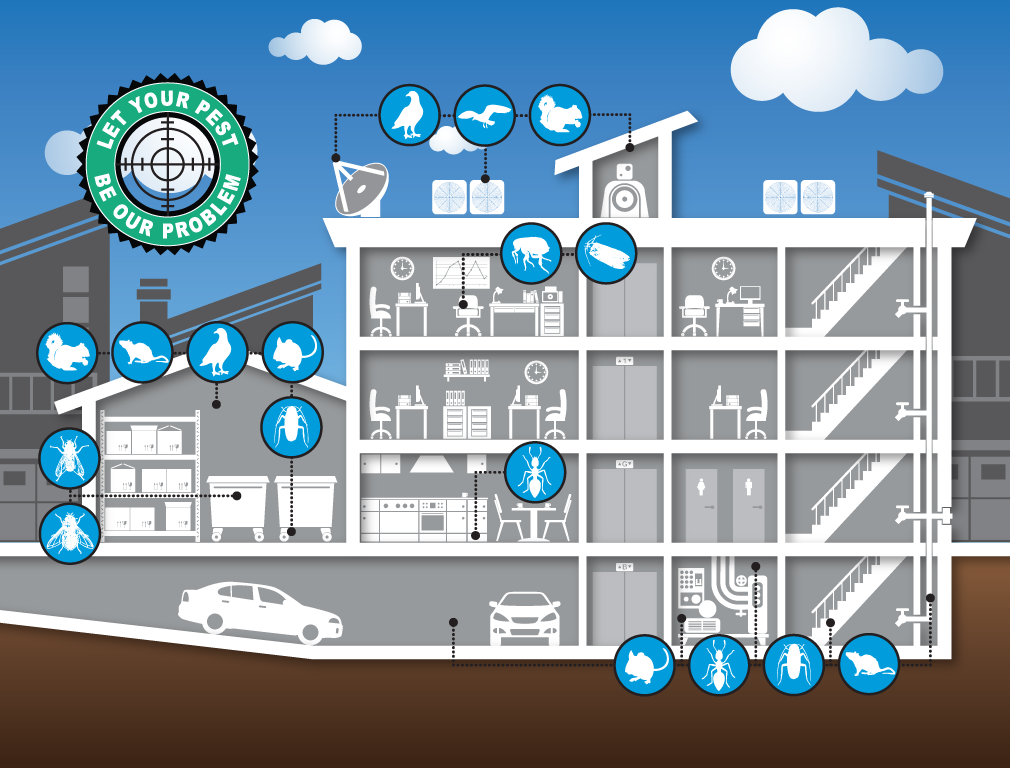The Duty Of Bug Control In Food Safety And Hygiene
The Duty Of Bug Control In Food Safety And Hygiene
Blog Article
Author-Willadsen Glover
Are you aware of the covert risks that pests posture to the security and hygiene of your food? From rodents to pests, these undesirable site visitors can infect your active ingredients, surface areas, and storage areas.
This article checks out the important role of parasite control in maintaining the highest possible criteria of food safety and security and health. Discover reliable strategies and prevention steps that will certainly assist you safeguard your service, consumers, and credibility.
Do not let pests endanger the top quality of your food.
The Influence of Pests on Food Safety And Security and Health
In your kitchen, bugs can have a significant impact on food safety and hygiene. These unwanted visitors, such as rodents, pests, and cockroaches, can infect your food, surfaces, and tools with unsafe germs, infections, and bloodsuckers. They can conveniently access your cupboard, cupboards, and also your fridge, leaving behind droppings, pee, and hair.
Not just can they ruin your food by chewing through product packaging, however they can likewise spread diseases like Salmonella, E.coli, and Listeria. Envision preparing a dish for your family, uninformed that the ingredients you're making use of are already contaminated.
It's critical to take immediate activity to avoid and control insects in your kitchen. Regular cleaning, appropriate food storage, and expert insect control steps are essential to make certain food safety and security and keep a sanitary atmosphere in your kitchen.
Effective Bug Control Methods for the Food Sector
Implementing effective insect control strategies is crucial for keeping food security and health in the food sector. By carrying out these methods, you can stop bugs from contaminating the food and make sure that your items are safe for intake.
One effective technique is to regularly evaluate and check your center for indications of insect activity. This consists of checking for droppings, nests, or any damages brought on by pests.
It's also crucial to secure all entry indicate prevent parasites from entering the center. Regular cleansing and sanitation are crucial, as pests are attracted to food residue and spills.
Additionally, go to the website monitoring is critical to stop the accumulation of food waste that can draw in insects.
Preserving Hygiene Requirements Through Parasite Avoidance Measures
To keep hygiene criteria, you should consistently apply insect prevention measures. By taking aggressive steps to avoid bugs from entering your food facility, you can guarantee the security and sanitation of your properties. Right here are some efficient insect avoidance procedures to take into consideration:
- Seal all fractures and holes: Bugs can enter through even the tiniest openings. Frequently check and secure any gaps in doors, windows, wall surfaces, and floorings to keep insects out.
- Appropriate waste monitoring: Throw away food waste immediately and firmly in sealed containers. This will reduce the tourist attraction of insects and avoid infestations.
- Normal cleansing and sterilizing: Keeping tidiness in your facility is critical. Baits and sanitize all areas, paying unique focus to areas where parasites may hide or breed.
- Apply a monitoring system: Consistently evaluate your premises for signs of pest activity. Install bug surveillance devices, such as catches or sensing units, to determine and resolve any kind of possible concerns early on.
Verdict
So bear in mind, when it involves food safety and security and hygiene, parasite control plays a crucial role.
By implementing reliable bug control approaches and safety nets, we can guarantee the highest possible requirements of cleanliness and safety in the food market.
Do not allow insects endanger the top quality of our food; allow's stand together and safeguard our health and health.
